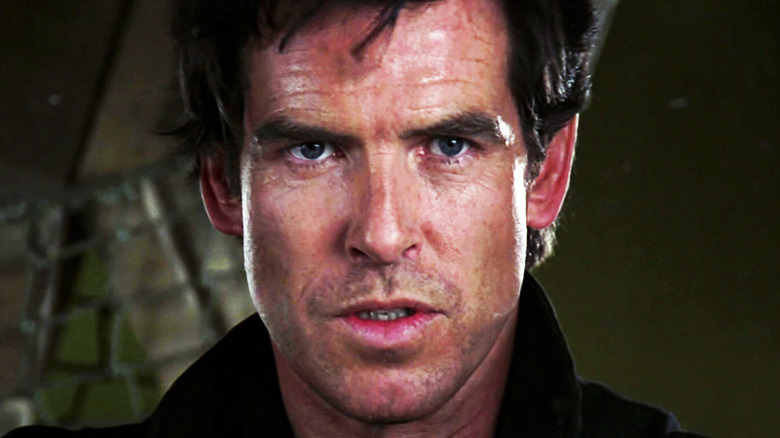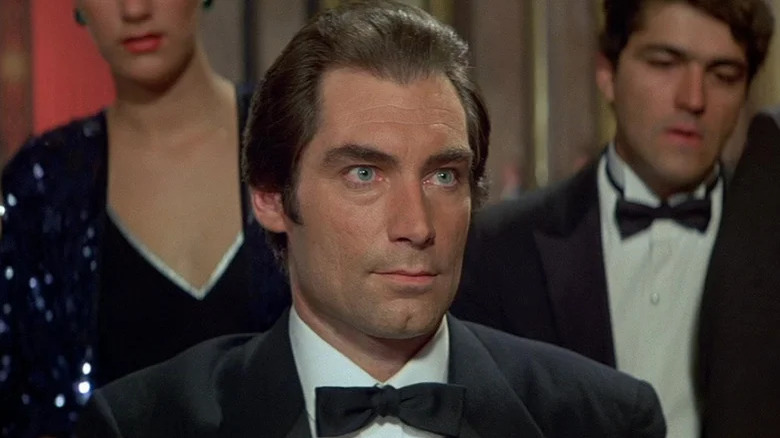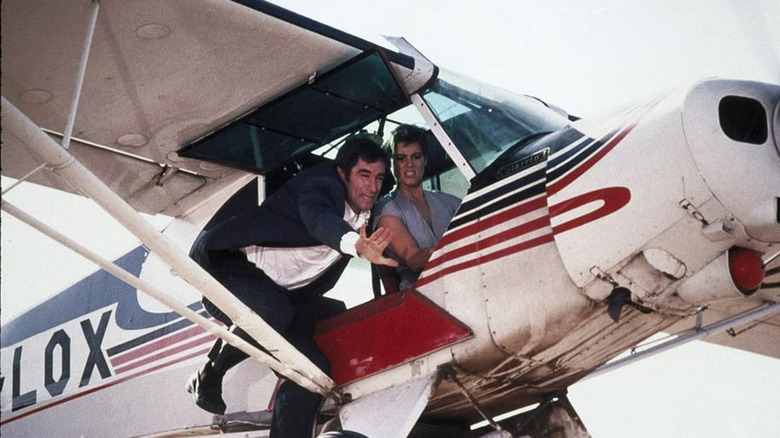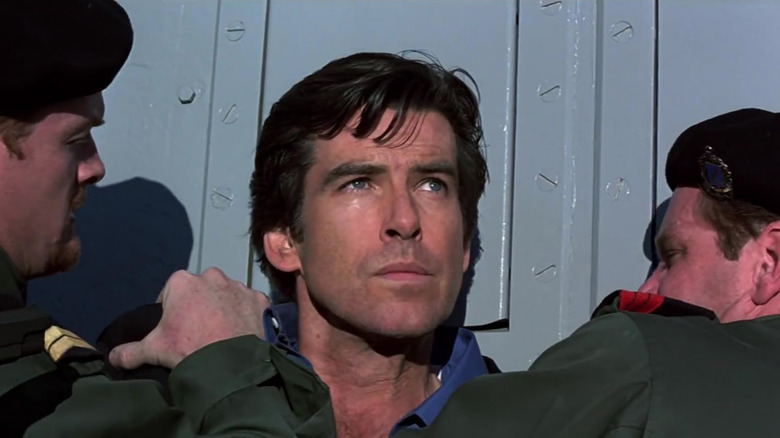The James Bond Legal Battle That Delayed GoldenEye For Nearly Half A Decade
In many ways, Timothy Dalton's James Bond was before his time. Following the more tongue-in-cheek approach taken by Roger Moore, Dalton debuted as Bond in 1987's "The Living Daylights" as a more hard-edged 007 that wasn't a far cry from what Daniel Craig would bring to the role some 16 years later. Dalton would continue that more character-focused portrayal with 1989's "Licence to Kill," but at the time, not all critics were convinced.
Among all the James Bond movies, Dalton's two outings are by no means viewed as blunders. But they aren't necessarily seen as all-time classics, either. Dalton never really got the scripts he deserved, and it seems longtime Bond producer Albert "Cubby" Broccoli may have seen it similarly. After "Licence to Kill," Broccoli decided to part ways with Richard Maibaum, though the writer claims he left "by mutual consent." Maibaum had co-written the movie that kicked off the Bond franchise, 1962's "Dr. No," and had been part of the 007 family ever since, penning various scripts in the series right up until "Licence to Kill." But after Dalton's sophomore outing, Maibaum was out, and Broccoli had big plans for Bond's future.
Unfortunately, legal issues held everything up and drastically changed the producer's plans. The movie that followed "Licence" was, of course, 1995's "GoldenEye," and not only was Dalton nowhere to be seen, but there had been a full six years between it and the previous Bond entry. So what on earth happened?
Dalton bows out
After "Licence to Kill," there were plans to bring Timothy Dalton back as Bond for the 17th film in the franchise. Unfortunately, a tricky legal situation prevented that from happening. As late as April 1994, a year and a half before the actual Bond 17, "GoldenEye," hit theaters, Dalton bowed out citing his belief that it was "time to leave that wonderful image [of 007] behind and accept the challenge of new ones."
Speaking to The Week, Dalton clarified the chain of events, saying:
"Because of the lawsuit, I was free of the contract. And [producer Albert] Broccoli, who I really respected as a producer and as a friend, asked me what I was going to do when it was resolved. I said, 'Look, in all honesty, I don't think that I will continue.' [...] When [the next movie] did come about, it was probably four or five years later. [Broccoli] asked if I would come back, and I said, 'Well, I've actually changed my mind a little bit. I think that I'd love to do one.'"
According to Dalton, Broccoli and Eon Productions — the company responsible for the Bond movies —wanted the actor to sign on for a further "four or five" films, which he just wasn't prepared to do. And so, despite changing his mind and saying he'd return to the role, Dalton left the series just as Eon had put their legal issues behind them, leaving his two portrayals of Bond to be forever underappreciated.
But what about those legal issues? What kind of lawsuit could have caused such a delay that Eon lost their James Bond? Well, the kind that arises from a bewildering combination of corporate acquisitions, rights issues, and corrupt businessmen.
Licence revoked
"Licence to Kill" locked the Bond producers in a significant battle with British censors, but that was just the beginning of their troubles. Albert Broccoli was set on keeping Timothy Dalton onboard for the sequel and, as the actor told EW, the 17th Bond movie "had been written" with him in mind, with Eon already "talking directors." In Edward Gross and Mark A. Altman's book chronicling the history of Bond, "Nobody Does it Better," the authors recall how there was even a billboard for the Dalton-starring movie set up at the 1990 Cannes Film Festival. Then, a lawsuit derailed everything.
Danjaq was the holding company set up by Albert Broccoli and former Bond producer Harry Saltzman to retain the Bond copyrights and trademarks. It's also the parent company of Eon. As recounted in "Nobody Does It Better," in 1989 Danjaq actually sued MGM/United Artists, the company which distributed the Bond movies and which, up until 1986, had a 50% stake in the 007 enterprise. The specifics of why Danjaq sued are fairly complex, but put simply, the company was trying to sell the TV and home video distribution rights to the Bond catalog, and Broccoli wasn't happy.
To be more specific, MGM was bought by French-Italian broadcasting group Qintex, which also owned French production company Pathé. In order to finance the acquisition of MGM and its merger with Pathé, CEO Giancarlo Parretti planned to sell off TV and home video rights to MGM's catalog. That included the Bond films, which following the sale of much of MGM's library to Warner Bros. in the '80s, were pretty much the jewel in MGM's crown. Unfortunately, no one asked Broccoli and Danjaq, which had always maintained strict control over the 007 franchise.
Six years later...
According to "Nobody Does It Better," "It would take several years, new owners, and a new studio president in John Calley to resolve the disagreement and save the Bond franchise from the lawyers." By December 1992, Giancarlo Paretti, now mired in corruption scandals, had lost control of MGM/Pathé and the company reverted to MGM/UA.
Making matters worse during this time was the ongoing threats from Kevin McClory, who'd co-written the original "Thunderball" script all the way back in the late-'50s. That version of "Thunderball" proved to be a legal landmine in the decades since its creation, with McClory threatening to make Bond films based on rights he'd acquired in a previous lawsuit. In other words, the early-90s were not an easy time for Albert Broccoli or the Eon family.
But by 1993, the legal issues were mostly resolved, and Eon could finally push ahead with making a new Bond movie. Unfortunately, they would lose Timothy Dalton the following year, prompting the search for a new 007 which would ultimately lead them to Pierce Brosnan. "GoldenEye" wouldn't debut until November 1995, six and a half years after "Licence to Kill." That remains the longest delay between Bond films to this day. Only the Covid-delayed "No Time to Die" came close to matching it, arriving six years after 2015's "Spectre" in September 2021.



